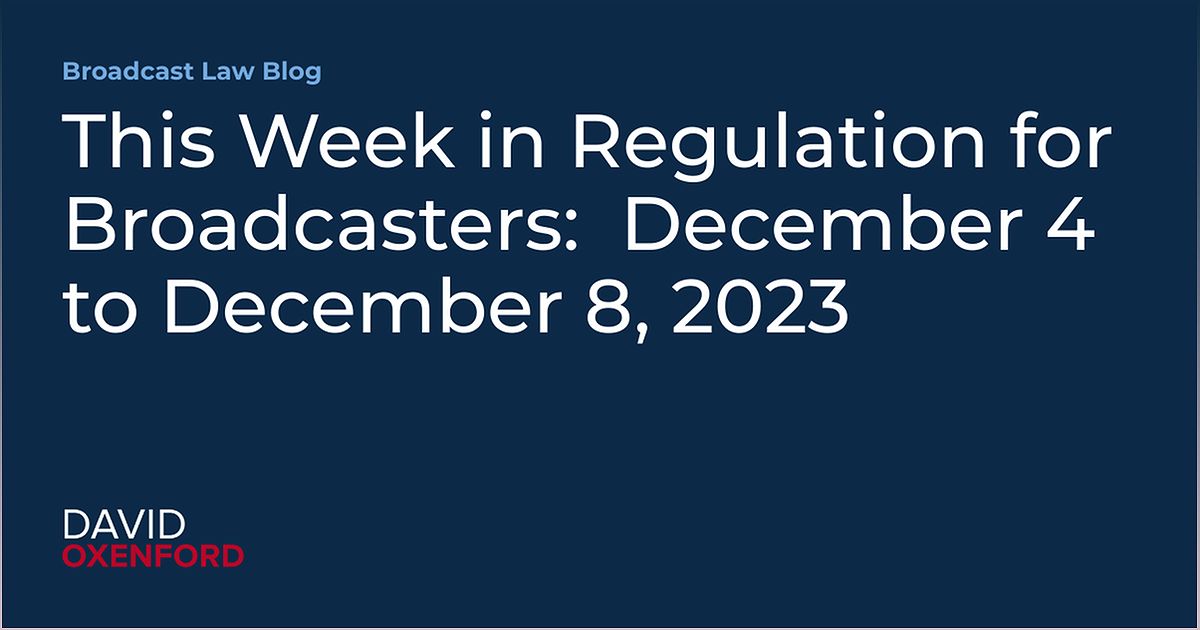Regulatory Developments in Broadcasting: Recent Updates and Implications
Discover the latest regulatory developments in the broadcasting industry and their implications for broadcasters. From the proposed AM for Every Vehicle Act to FCC fines and allocation of noncommercial educational channels, this article provides an overview of recent updates. Stay informed and understand the impact of these developments on the broadcasting landscape.
The AM for Every Vehicle Act: Ensuring Access to Free AM Radio
Explore the proposed AM for Every Vehicle Act and its potential impact on the broadcasting industry. Learn about the requirement for free AM radio in every new car and the current status of the bill.
The AM for Every Vehicle Act has gained attention in the broadcasting industry. This proposed legislation aims to ensure that every new car is equipped with free AM radio. However, the bill's progress has faced a delay due to Senator Rand Paul's refusal to consent to a Senate vote.
What are the implications of this act for broadcasters? Will it lead to increased listenership for AM radio stations? Stay informed about the latest updates on this bill and its potential impact on the future of broadcasting.
FCC's Reimbursement Deadlines for C-band Transition
Understand the FCC's reimbursement deadlines for earth station operators affected by the C-band transition. Learn about the costs incurred and the specific deadlines for submitting reimbursement claims.
The FCC's Wireless Telecommunications Bureau has set two important deadlines for earth station operators impacted by the C-band transition. The first deadline is February 5, 2024, for reimbursement claims related to costs incurred and paid by claimants until December 31, 2023.
The second deadline is July 1, 2024, for costs incurred and paid after December 31, 2023. It is crucial for broadcasters to be aware of these deadlines and ensure timely submission of their reimbursement claims to avoid any potential financial implications.
FCC Fines and Consent Decrees: Ensuring Compliance
Discover recent FCC fines and consent decrees issued to broadcasters for rule violations. Learn about the fines imposed and the violations addressed by the FCC's Media Bureau.
The FCC's Media Bureau has been taking action against broadcasters who violate FCC rules. One example is a Texas Class A TV station that was fined $13,000 for operating without authorization and failing to timely file a license application.
In addition to fines, the FCC has also entered into Consent Decrees with AM stations to resolve investigations of rule violations. For instance, a Pennsylvania station was fined $3,000 for not filing its license renewal application on time, while an Oregon station faced a $5,000 fine for an unauthorized transfer of control.
These actions emphasize the importance of compliance with FCC regulations and the consequences that broadcasters may face if they fail to adhere to the rules.
Prioritizing Common Alerting Protocol: Extending the Requirement
Learn about the FCC's decision to extend the requirement for prioritizing the Common Alerting Protocol (CAP) for noncommercial TV stations. Discover the implications of this extension on emergency alert services.
The FCC's Public Safety and Homeland Security Bureau has partially granted a request by a group of Mississippi noncommercial TV stations. These stations sought an extension of the FCC's requirement to prioritize the Internet-based Common Alerting Protocol (CAP)-formatted version of an Emergency Alert Service message.
What does this extension mean for broadcasters and emergency alert services? Stay informed about the latest developments and understand the implications for ensuring public safety through effective emergency communication.
Updates on Local Broadcast Ownership Rules
The FCC has until December 27th to conclude its 2018 quadrennial review of local broadcast ownership rules. This review has significant implications for broadcasters, as it determines the regulations surrounding ownership limits and consolidation in the industry.
What are the potential outcomes of this review? Lobbying efforts continue to shape the FCC's decision-making process. Stay tuned for updates on the future of local broadcast ownership rules and their impact on the broadcasting landscape.
Regulating AI: Protecting Americans and Ensuring Transparency
Senator Schumer has highlighted the need to craft legislation that safeguards Americans from the potential harms of AI. These efforts will continue in 2024, reflecting the growing importance of regulating artificial intelligence.
On a state level, Michigan has become the fifth state to require disclosure of the use of AI in political advertisements. This move aims to ensure transparency and accountability in political campaigns.
What are the ethical and regulatory considerations surrounding AI? Stay informed about the latest developments in AI regulation and understand the implications for the broadcasting industry and society as a whole.
Expanding Local Television Services: Noncommercial Educational Channels
The FCC's Media Bureau has issued a Report and Order allocating noncommercial educational channel 4 to Jacksonville, Oregon. This allocation marks an important milestone for the community, as it establishes their first local television service.
How will this allocation enhance local television services and contribute to the community's access to educational content? Explore the implications of this decision and its impact on the broadcasting landscape in Jacksonville, Oregon.
LPFM Filing Window: Opportunities for New Stations
Discover the LPFM filing window and the opportunities it presents for new stations. Learn about the eligibility criteria and the end of the FM translator modification freeze.
The LPFM filing window is open from December 8 to December 13, providing eligible entities with the opportunity to apply for a new LPFM station. This window also marks the end of the FM translator modification freeze.
What are the criteria for eligibility? How can broadcasters take advantage of this filing window to expand their reach and serve their communities? Stay informed about the latest developments and seize the opportunities presented by the LPFM filing window.

